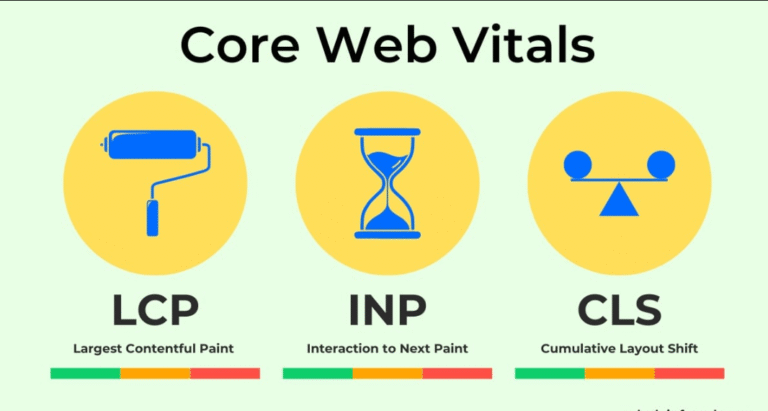Organic Search: Enhancing your Sustainable Traffic
few concepts are as essential as organic search. Organic search refers to the process by which users find websites through non-paid search engine results. Appearing in these results is critical for any website, as it provides long-term traffic and visibility without the ongoing cost of paid advertising.
In this article, we’ll dive into what organic search is, why it matters, and how to optimize your website to rank well in organic search results.
1. What is Organic Search?
The process of users entering a query into a search engine like Google and clicking on the results that appear naturally, without being paid for. These are distinct from paid advertisements, which appear at the top or bottom of search results and are marked as ads.
The results are based on the relevance of the content to the search query, as determined by the search engine algorithm. Ranking well in organic search provides a steady stream of traffic without requiring continuous ad spend.
2. Why is Organic Search Important?
It is essential for sustainable business growth. Here’s why:
Long-term Traffic
Unlike paid ads that only generate traffic while your campaign is running, organic search can provide ongoing traffic for years. Once you rank well for a particular keyword, you can continue attracting visitors without paying for each click.
Trust and Credibility

Users tend to trust organic search results more than paid ads. Being at the top of the organic results positions your website as a credible source of information. This trust factor can lead to higher click-through rates (CTR) and better user engagement.
Cost Efficiency
While optimizing for organic search requires time and effort, the costs are generally lower than running continuous paid campaigns. Once you’ve optimized your site for SEO, you won’t need to pay for every visitor, as you would with pay-per-click (PPC) advertising.
3. How Organic Search Works
Search engines like Google use complex algorithms to determine which web pages are most relevant to a user’s query. These algorithms take into account hundreds of ranking factors, including:
- Keywords: The presence of keywords relevant to the search query.
- Content quality: High-quality, informative, and engaging content is rewarded with better rankings.
- Backlinks: Sites with more quality backlinks from reputable sources tend to rank higher.
- User experience: Page speed, mobile optimization, and ease of navigation all affect how a page ranks in organic search.
- On-page SEO: Factors like meta descriptions, title tags, and internal linking play a role in determining rankings.
4. Organic Search vs. Paid Search
Organic Search
- Cost: Free, but requires time and effort to optimize.
- Lifespan: Long-term; can generate traffic for years once a page ranks well.
- Trust: Higher trust among users compared to ads.
- Position: Appears below paid ads but can take up the majority of the results page.
Paid Search
- Cost: Requires ongoing ad spend; pay-per-click (PPC).
- Lifespan: Traffic stops as soon as you stop paying.
- Trust: Marked as an ad, which may reduce trust among some users.
- Position: Appears at the top or bottom of search results with an “Ad” label.
While both organic and paid search strategies are valuable, focusing on organic search provides a more sustainable and cost-effective approach over time.
5. Key Factors that Influence Organic Search Rankings
To perform well, it’s essential to understand the factors that search engines use to rank pages. Some of the most important elements include:
Keyword Optimization

Optimizing your content around relevant keywords is crucial for ranking in organic search. Use tools like Google Keyword Planner, Ahrefs, or SEMrush to identify the best keywords for your niche. Be sure to include these keywords naturally in your content, headers, meta descriptions, and title tags.
Content Quality
Search engines reward high-quality content that provides valuable information to users. Make sure your content is comprehensive, engaging, and informative. Content length also matters; longer articles often rank better as they provide more in-depth information.
Backlinks
Backlinks from reputable websites act as votes of confidence for your content. The more high-quality backlinks your site receives, the higher it will rank in organic search. However, focus on getting links from authoritative sites, as low-quality or spammy backlinks can harm your rankings.
User Experience (UX)
Google pays close attention to how users interact with your website. Factors like page load speed, mobile responsiveness, and easy navigation all contribute to a better user experience, leading to higher rankings.
On-Page SEO
On-page optimization refers to optimizing individual web pages to rank higher. This includes:
- Title tags: Use your primary keyword in the title tag to help search engines understand the page’s relevance.
- Meta descriptions: Write a compelling meta description that includes relevant keywords and encourages users to click.
- Header tags: Use header tags (H1, H2, etc.) to structure your content logically and improve readability.
- Internal linking: Link to other relevant pages on your site to help search engines crawl your site more effectively.

6. How to Improve Your Organic Search Rankings
Improving your rankings in organic search requires a multi-faceted approach. Here’s how to start:
Create High-Quality Content
Your content must be relevant, valuable, and up-to-date. Focus on writing content that answers users’ search queries comprehensively. Updating your content regularly also signals to search engines that your site is active and relevant.
Optimize for Mobile
With more people using mobile devices to search the web, mobile optimization is critical for SEO. Google uses mobile-first indexing, which means it predominantly uses the mobile version of your website for indexing and ranking.
Improve Site Speed
Page load speed is a ranking factor, and slow websites can hurt your organic search performance. Tools like Google PageSpeed Insights can help you identify areas for improvement. Compress images, reduce redirects, and optimize code to boost load times.
Build Quality Backlinks
Focus on building backlinks from high-authority websites in your niche. This can be done through guest blogging, influencer outreach, and creating shareable, valuable content that others will want to link to.
Conduct Regular SEO Audits
Regularly auditing your site for SEO issues helps identify and fix any problems that may be hindering your organic search performance. Tools like Screaming Frog, Ahrefs, and Moz can help you conduct in-depth SEO audits.
7. Tools to Help Optimize for Organic Search
Several tools can assist you in optimizing your website for organic search:
- Google Analytics: Track your organic traffic, bounce rates, and user behavior.
- Google Search Console: Monitor your website’s performance in Google search, check for indexing issues, and optimize your site for better rankings.
- Ahrefs: A comprehensive tool for keyword research, backlink analysis, and competitor research.
- SEMrush: Offers keyword research, SEO audits, and competitor analysis.
- Yoast SEO: A popular plugin for WordPress that helps optimize your content for search engines.
8. Organic Search and the Future of SEO
The future of organic search is heavily influenced by changes in search engine algorithms, AI, and user behavior. Voice search, AI-powered assistants, and mobile-first indexing are trends that are shaping the future of organic search. Websites that optimize for these trends by focusing on natural language, semantic search, and mobile-friendly experiences are more likely to succeed.
Conclusion
Organic search is one of the most important aspects of SEO, providing sustainable, long-term traffic without the costs associated with paid ads. By focusing on quality content, optimizing for keywords, improving site speed, and building backlinks, you can enhance your website’s organic search performance. This not only boosts visibility but also increases trust and credibility with your audience.
Contact Us Today for a free, no obligation, consultation.
- Google Search Console: Learn how to monitor your website’s performance and optimize for better rankings.
- Google PageSpeed Insights: Measure and improve your website’s load speed to enhance both user experience and SEO.
- Ahrefs – SEO Tool: A comprehensive SEO tool for keyword research, backlink analysis, and site audits.







